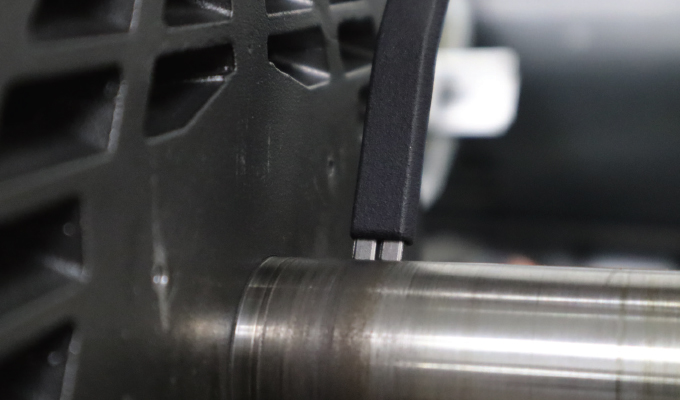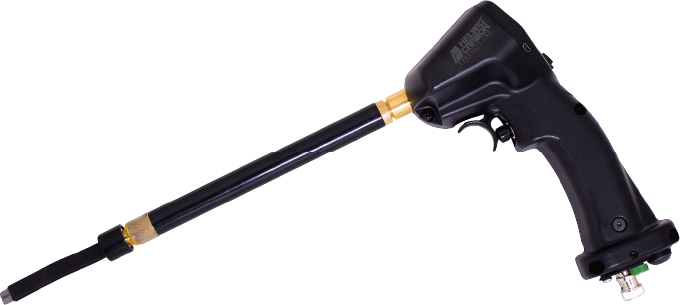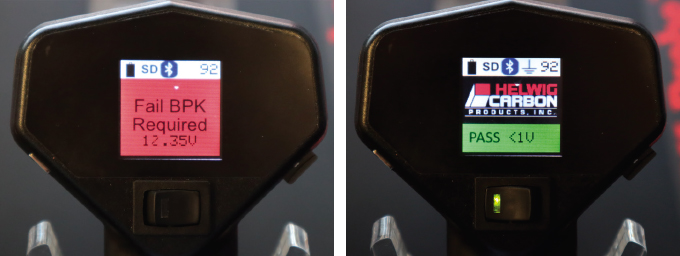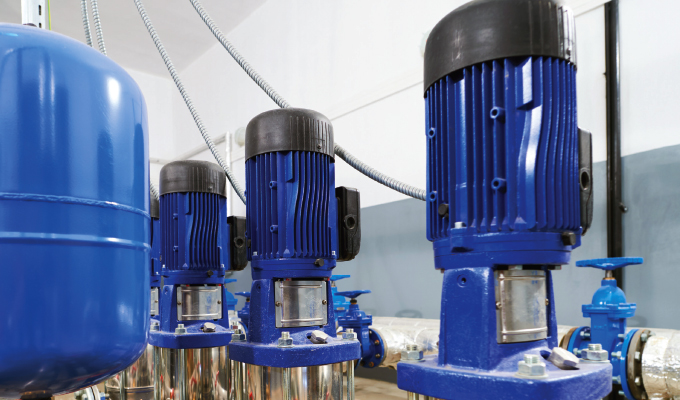The following case study presents both the costly impact of bearing failure and the value of bearing protection. In the past few years, a pump manufacturer has been experiencing a growth in warranty claims due to failed bearings in their pump motors. This pump manufacturer has half of a century of experience in the submersible pump industry. The roots of this company started in 1957 and they have grown ever since serving the dewatering, industrial, wastewater, and sewage pumps industries.
The cost to take apart and repair a pump with new bearings can be north of $7,000 for each pump, leading to tens of thousands of dollars in warranty claims. The owner made it a priority to find out what was causing the bearing failure in order to reduce their warranty costs and save their customers from unexpected downtime.
After some research, the engineers at the pump company suspected that the failed bearings might be caused by electrical discharge machining from induced shaft currents. Many of their pump applications will utilize a variable frequency drive (VFD) to increase the pump motor efficiency. While VFDs lower power consumption, they also induce currents onto the motor shaft. These shaft currents will often discharge through the motor bearings causing fluting, burnt grease, and eventual bearing failure.

RISK ANALYSIS: THE FIRST STEP
The first step to solving the problem was to verify if the bearing failure was being caused by VFD-induced currents. Helwig Carbon engineers were invited to come out to the pump manufacturing facility in California. A new submersible pump was hooked up to a VFD. Helwig’s BPK-Probe: Shaft Voltage Detection Device was used to determine if there was voltage present on the motor shaft. The BPK-Probe uses a silver graphite tip to test if the induced shaft currents put the bearings at risk for electrostatic discharge (ESD) machining. These discharges will lead to fluting and frosting of the bearings and bearing raceway, burnt grease, and eventual bearing failure.
If risk is detected, the BPK-Probe can then use an embedded Bearing Protection Kit to depict the reduction of risk level or voltage if a Helwig BPK is installed. Testing concluded that there were over 12 volts present on the shaft. Industry standards say that anything above 2 volts presents a significant risk for bearing discharge. This testing reaffirmed the original suspicion that the bearing failures in the field were likely being caused by discharges from common-mode current.

AN EFFECTIVE AND SIMPLE SOLUTION
From decades of experience, the engineers at Helwig Carbon knew the most effective way to prevent common-mode current from discharging through the bearings is to provide an alternative, least resistance path to ground. The BPK-SB featuring silver graphite technology was selected. This kit features a constant force spring, which puts positive force on top of a silver graphite brush. This allows for uninterrupted electrical contact between the brush and rotating shaft ensuring superior grounding. The material provides effective grounding at high and low frequencies and is very low friction to allow for extra-long life.
It was also of great importance to the pump manufacturer to find a solution that required no additional maintenance from the end-user. The BPK-SB is sealed from contaminants and the silver graphite grade provides cleaning action to the motor shaft surface ensuring years of performance with no extra maintenance required.
Finally, installation costs needed to be considered. A custom bracket was designed for easy installation on the assembly line or in the field. Overall, the BPK-SB package will provide economical and effective insurance against bearing failure due to electrical discharges for many years.

THE PROOF IS IN THE SAVINGS
Helwig tested the pump motors at the customer’s facility with and without the BPK on the shaft to ensure the solution is working. Various pump motors were hooked up to a VFD and ran using typical field operating conditions. The motors were then tested with and without the BPK solution using the BPK-Probe. Results showed that the motors without the BPK engaged showed shaft voltages of over 12 volts, which is well above the 2 volts threshold for bearing damage. When the BPK solution was engaged, the shaft voltage dropped to under 1 volt. This showed the Helwig solution was providing the appropriate protection of the pump motors and will eliminate bearing failures from electrical discharge machining.
The pump manufacturer will save tens of thousands of dollars in yearly repairs and warranty replacements while saving their customers from unwanted downtime. Helwig Bearing Protection Kits have now been implemented on new pump motors in the United States, Europe, and India, as well as being retrofitted to pumps already in the field. No issues of electrical bearing failure have been reported since the BPK-SB was added to the pump motors. The pump manufacturer and its customers are more than happy with the result.
FOR MORE INFORMATION
Helwig Carbon Products, Inc. has been producing a full-line of precision-machined carbon brushes, brush holders, and mechanical carbons since 1928. Headquartered in Milwaukee, Wisconsin, Helwig Carbon is the largest American owned carbon brush manufacturer. Helwig’s customer service team, engineering group, and field service representatives are eager to lead customers to effective solutions that maximize product performance and minimize maintenance and downtime. For more information visit, www.helwigcarbon.com.
MODERN PUMPING TODAY, March 2022
Did you enjoy this article?
Subscribe to the FREE Digital Edition of Modern Pumping Today Magazine!



